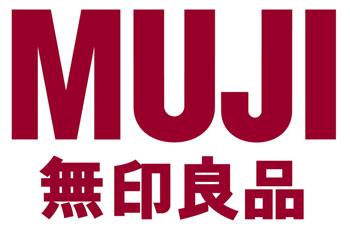Muji. Famous iconic brand
One of the most interesting brands in the world is undoubtedly the Japanese brand Muji, which is often called a real anti-brand. At the same time, Muji is a real brand that is now popular all over the world.
Why is the Muji brand called an anti-brand?

It should be said here that the Muji brand name is part of the term "Mujirushi Ryohin", which is translated from Japanese as "goods without a quality certificate." That is, Muji went against the accepted strategies of business and advertising. They did not spend money on advertising or quality certification, which significantly reduced the cost of goods.
Now, however, such positioning is called the "strategy of minimalism." And Muji showed by example how effective such a strategy can be (or perhaps it would be more correct to say “anti-strategy”).
Ryohin Keykaku entered the market quite late (in 1980), when the market was occupied by other companies for a long time. So what was the new company to do? And then Muji came up with a special move that ensured the popularity of the company and allowed her to quickly win back the positions occupied by the enemy. This is how Muji products appeared in the world - products that do not pass quality certification. True, the lack of certification does not mean at all that Muji products were worse than certified ones. No, each product undergoes a very thorough check, but only by the specialists of the company itself.
The first Muji stores specialized in inexpensive everyday goods that a person cannot do without - these are stationery, various cosmetics, kitchen utensils, clothing and furniture. And the sold goods were packed in simple paper bags with a modest Muji label.
Of course, the cheapness of goods immediately attracted many Japanese to Muji stores, especially since, despite the lack of quality certificates, goods under the Muji brand were in no way inferior in quality to goods of well-known advertised companies. And sometimes even Muji products were distinguished by a good stylish design (by the way, the designer of many products was a well-known person in this area - Yoshi Yamamoto).
In 1991, the Muji brand store appeared already in Europe. And Europeans also appreciated the cheapness and good quality of Muji products.
And just like that, without the expense of expensive promotions, Muji has taken over the world. The product was advertised (and completely free of charge) by the buyers themselves, praising their own purchases in Muji stores. And the only thing the company spends on is producing a catalog of Muji branded products, which are readily purchased by people who have become real fans of Muji products.
By the way, now the buyers themselves can become designers of Muji branded products. You can do this on the official website of the company, where a special toolkit is created right on its own Internet resource, and many people from all over the world have already contributed to the development and improvement of the design of Muji branded products.
Now at least 5 thousand different products are produced under the Muji brand. And Muji branded clothing has even been exhibited more than once at fashion weeks in Milan and London. And one of the most popular products released under the Muji brand was the Muji branded CD player (designed by Naoto Fukasawa), which was sold out in less than eight months from the date of its first appearance, in the amount of more than 50 thousand units.
So now, despite the lack of advertising, the Muji brand is one of the most famous in the world, and branded goods are in demand and trusted by customers not only in Japan, but also in many countries in Europe, Asia and America.
Other famous iconic brands:
• Moet & Chandon. Famous iconic brand
• Mercedes-benz. Famous iconic brand
• Microsoft. Famous iconic brand
Visitors are currently reading:
